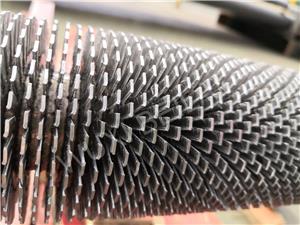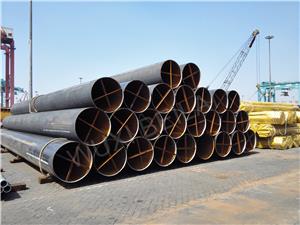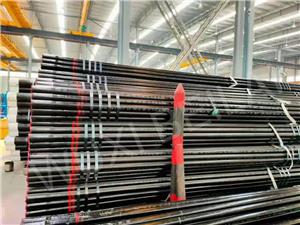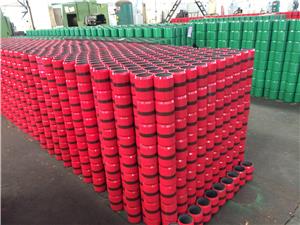Technical Challenges and Solutions of Subsea Line Pipe | BEILAI Group
As a trusted supplier of alloy steel line pipe, BEILAI Group understands the critical importance of engineering excellence and material reliability in subsea oil and gas infrastructure. Subsea line pipe systems face some of the most extreme environmental and mechanical conditions in the pipeline industry. From high external pressure to corrosive seawater environments and mechanical stresses during installation, the demands on subsea line pipe are among the highest in the sector.
In this article, BEILAI Group explores the major technical challenges associated with subsea line pipe, and outlines the solutions and technologies used to overcome them—ensuring long-term performance, integrity, and safety of subsea pipeline systems.
1. High External Pressure Resistance
One of the most demanding challenges for subsea line pipe is withstanding the enormous external pressure encountered in deepwater environments. At depths of 2,000 meters or more, external hydrostatic pressure can exceed 20 MPa (200 bar). If the pipe wall is not sufficiently thick or strong, it may collapse under this pressure.
Solutions:
High-strength alloy steels such as API 5L X65, X70, and X80 are commonly used to provide the required structural integrity.
Advanced wall thickness optimization is used to balance collapse resistance and weight for efficient laying.
Finite element analysis (FEA) modeling supports the design of safe, pressure-tolerant subsea pipelines.
BEILAI Group manufactures subsea line pipe using precision-controlled steel grades and thicknesses that meet or exceed collapse resistance requirements defined by DNV and API standards.
2. Corrosion and Cracking Resistance
The subsea environment is highly corrosive, particularly due to the presence of seawater, dissolved oxygen, and microbial activity. Additionally, pipelines transporting sour gas (containing H₂S or CO₂) require excellent resistance to sulfide stress cracking (SSC) and hydrogen-induced cracking (HIC).
Solutions:
Application of corrosion-resistant alloys (CRAs) such as 13Cr, Super Duplex, or clad/lined pipe designs.
Fusion bonded epoxy (FBE) or 3LPE/3LPP coatings are applied to the outer surface to protect against external corrosion.
Internal linings or chemical inhibitors may be used depending on transported media.
At BEILAI Group, all subsea line pipe can be supplied with anti-corrosion coatings and is produced with full traceability and quality control to ensure long-term corrosion resistance.
3. Pipe Welding and Fatigue Resistance
Subsea pipelines are typically joined by welding, often under strict offshore conditions. The weld seams must endure years of cyclic loading from ocean currents and pressure variations. Poor weld quality can lead to early fatigue failures or crack initiation.
Solutions:
Use of automatic submerged arc welding (SAW) or orbital welding techniques for consistency.
Application of post-weld heat treatment (PWHT) to reduce residual stress.
Non-destructive testing (NDT) methods such as ultrasonic testing and radiography to verify weld integrity.
BEILAI’s manufacturing process includes rigorous welding control, testing, and documentation to guarantee each joint in a subsea line pipe network performs reliably under dynamic subsea conditions.
4. Pipe Lay and Installation Stress
During subsea pipeline installation (S-lay, J-lay, or reel-lay methods), pipes experience bending, torsion, and tension stresses, which may exceed those seen during operation. The line pipe must be able to withstand these mechanical stresses without permanent deformation or cracking.
Solutions:
Use of high-ductility steel grades with controlled yield-to-tensile ratio.
Design for minimum yield strength (SMYS) that supports safe installation loads.
Strict control of roundness, ovality, and straightness to facilitate smooth laying.
BEILAI Group manufactures pipes with excellent dimensional tolerances and mechanical properties, supporting safe and efficient offshore installation.
5. Deepwater Temperature and Thermal Insulation
In ultra-deepwater, ambient temperatures can drop below 4°C, increasing the risk of hydrate formation and wax deposition inside the pipeline. Proper insulation and thermal management are required to ensure uninterrupted flow.
Solutions:
Integration of thermal insulation coatings, such as polypropylene foam or syntactic polyurethane, on subsea line pipe.
Use of pipe-in-pipe (PIP) systems or active heating in extreme cases.
Design optimization of flow rate, pipe diameter, and wall thickness for thermal retention.
BEILAI works closely with project owners to deliver subsea line pipe with insulation options tailored to site-specific temperature and flow assurance requirements.
6. Harsh Environmental Impact and Loadings
Subsea line pipes must resist not only internal and external pressures but also environmental loading from seabed movement, underwater currents, seismic activity, and even fishing trawlers or dropped objects. Mechanical stability and flexibility are critical in hostile environments.
Solutions:
Application of mechanical protection layers, such as concrete weight coating or rock dumping.
Stress and fatigue analysis during design to predict lifetime behavior.
Flexible joint systems and expansion loops may be included for longer pipelines.
BEILAI ensures each subsea line pipe is engineered with an in-depth understanding of local seabed conditions and environmental loads, ensuring robustness across the pipeline’s lifespan.
The subsea oil and gas industry places exceptional demands on line pipe performance, pushing the boundaries of metallurgy, welding, mechanical engineering, and corrosion science. Subsea line pipe must meet strict specifications across multiple technical dimensions to ensure safety and reliability under the ocean’s extreme conditions.
As an experienced supplier of subsea line pipe solutions, BEILAI Group offers high-performance alloy steel pipe with advanced coatings, strict quality control, and full documentation support. Whether for shallow water or ultra-deepwater applications, BEILAI provides customized subsea pipeline solutions that meet or exceed industry standards.
Contact BEILAI Group today for expert support and world-class subsea line pipe tailored to your offshore pipeline project needs.




